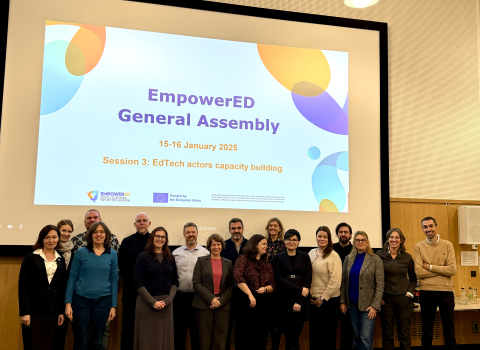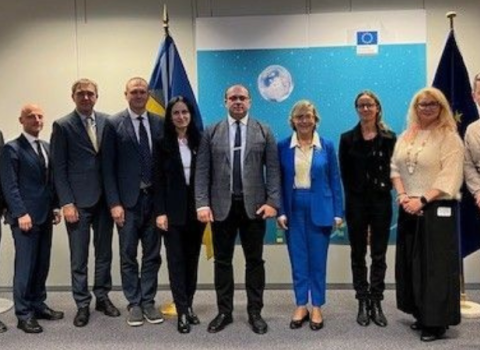Nuala’s Moran’s roundup of news and views in the management of intellectual assets
Helpdesk
Collaborative projects are all about creating and exploiting new intellectual property, but according to a body funded by the European Union to help innovators with IP issues, the greatest concern for those setting up consortia to bid for EU Framework 6 funding is how to protect pre-existing know how from access not by competitors – but by other partners.
Anyone who wants to exclude existing IP must specify it before the project begins, or before a new partner joins the project. “Of course, this can prove difficult, particularly where it may be that this know how will be needed at some point during the research,” says attorney Britta Seidel-Speer. Unless IP is excluded the owners are obliged to grant access rights to their consortium partners.
Seidel-Speer helps run the IPR-Helpdesk, which provides a free advice service to companies, universities and research institutions on handling IPR issues when setting up and running Framework 6 projects. The helpdesk is itself funded by Framework 6.
The helpdesk, based at the University of Alicante, Spain, receives 100 queries a month. “Twenty-five per cent relate to the ownership of pre-existing knowhow, and any improvements or refinements that are made on it during the project,” Seidel-Speer told the UK Association for University Research and Industry Links (AURIL) conference in Birmingham at the end of September.
A further 15 per cent of queries are about access rights. IPR-Helpdesk helps also with setting up consortia, providing model agreements and helping putative partners to draw up agreements.
The number of calls coming from the newer member states is increasing as they get up to speed on joining Framework 6 projects. The helpdesk has a team of 24 legal experts at the University of Alicante, and recently added a further 13 staff at the Intellectual Property Law Institute of the Jagiellonian University in Cracow, Poland, to deal with queries from the May 2004 accession states.
Seidel-Speer’s hopes that the European Commission will take not of the analysis of the calls her colleagues deal with when it draws up the rules for Framework 7. “We assume that our experience is probably being considered,” says Seidel-Speer. “But we do not know to what extent our opinions or the stakeholders’ opinions will be taken into account.”
Patent Office
The UK Patent Office has launched the Opinions Service to help companies avoid unnecessary litigation. For £200 (€292) anyone can ask for an expert opinion on an issue of patent infringement or validity, getting a quick, low-cost and impartial assessment of the issues involved in a dispute.
Opinions from the Patent Office experts can be sought on any UK patent, or European patent that designates the UK. The opinions are non-binding, but given their provenance, are unlikely to be ignored.
The service is designed so that both sides of the argument can have their say. “We will publish requests on our website and allow four week for anyone to make comments. Patent holders will be contacted directly,” says James Porter, Senior Legal Adviser at the Patent Office. The patentee and the party requesting the opinion may both respond to comments by third parties.
The UK Patent Office joins its counterparts in Austria and Japan in providing expert opinions. “But they don’t have this unique idea of allowing both sides to contribute,” says Porter. “The aim is to resolve, rather than fuel disputes, helping companies avoid litigation because they recognise the opinion is impartial.”
Patent attorneys in the UK have welcomed the service. Jim Boff of the Chartered Institute of Patent Agents said, “Although these opinions will not have the legal effect of a court decision we expect them to be persuasive. We in the profession are well aware that this is an untested service, but if it enables at least some patent disputes to be resoled quickly and more cheaply than at present, then it will be worthwhile.”
Opinions will be written by senior patent examiners and then quality checked by officers who have experience of dealing with patent hearings. The Patent Office is yet to handle a live case, but, said Porter, “Staff have done a lot of training.”
Further information: www.patent.gov.uk/patent/opinions/index.htm
Competition
Finally, the penny has dropped and the European Commission has concluded that free market competition is not always the best environment to foster the growth of new, innovative companies.
At the end of September the Commission launched a consultation on measures to allow state subsidies where the free market has failed to create a nurturing environment for innovative SMEs.
The Commission is looking for comments in six areas:
- support for the creation and growth of innovative start-ups through tax exemptions and subsidies
- state aid for risk capital
- allowing state aid for R&D in SMEs engaged in innovation, such as, building commercial prototypes, technical design or feasibility studies
- subsidies for SMEs to buy services from innovation intermediaries
- subsidies for SMEs to recruit highly qualified researchers and engineers, and to exchange staff with universities and large companies
- support for the development of high tech clusters through collaboration and setting up projects of common European interest.
Launching the consultation, Competition Commissioner Neelie Kroes was sticking to her guns: “Effective competition is the best tool to strengthen innovation and competitiveness in Europe,” she said. But, she acknowledged, “State aid can also play a very useful supporting role.”
The impetus to look at allowing state aid for innovation in commercial companies came from the re-launch of the Lisbon strategy in February 2005. The strategy was unveiled originally in 2000, with the aim of making the EU, “the most dynamic and competitive knowledge-based economy in the world by 2010”. Halfway, though, progress is less than compelling and the EU has moved on believing from competition is all, to saying, “Ensuring competition as a driver of innovation is…at least as essential as government support.”
Further information: www.europa.eu.int/comm/competition/state_aid
Germany boosts bioscience entrepreneurs
The German Ministry of Education and Research announced plans to spend €150 million over the next ten years supporting entrepreneurship among biosciences researchers. The aim is to give researchers the skills they need to create spin out companies, and increase awareness of the commercial potential of their work.
Further information: www.bio-pro.de/en/life




 A unique international forum for public research organisations and companies to connect their external engagement with strategic interests around their R&D system.
A unique international forum for public research organisations and companies to connect their external engagement with strategic interests around their R&D system.